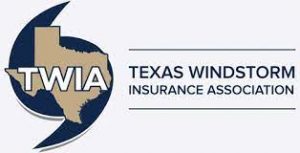 In an important decision reinforcing the 2011 TWIA reforms (HB 3), the Beaumont Court of Appeals has ruled that TWIA cannot be sued for breach of the duty of good faith and fair dealing or DTPA violations if TWIA provided the statutorily mandated coverage.
In an important decision reinforcing the 2011 TWIA reforms (HB 3), the Beaumont Court of Appeals has ruled that TWIA cannot be sued for breach of the duty of good faith and fair dealing or DTPA violations if TWIA provided the statutorily mandated coverage.
Texas Windstorm Insurance Association v. Kevin Kelly and Tiffany Kelly (No. 09-22-00173-CV; delivered October 19, 2023) arose from damage to the Kellys’ home from Hurricane Harvey in 2017. According to TWIA’s adjuster, the Kellys’ damage resulted from both covered wind damage and non-covered wind-driven rain. Unfortunately for the Kellys, they declined to purchase a TDI-approved endorsement to their windstorm and hail policy that covered wind-driven rain that did not enter the dwelling through an opening caused by wind or hail. When TWIA declined coverage for that part of the loss, the Kellys sued TWIA and their insurance agent, alleging breach of contract and extracontractual claims for bad faith and DTPA violations. TWIA and the Kellys moved for summary judgment. A Jefferson county trial court denied TWIA’s motion and granted that of the Kellys. At TWIA’s request, however, the trial court authorized a permissive appeal to resolve the coverage issue. The court of appeals accepted the permissive appeal.
In an opinion by Chief Justice Golemon, the court of appeals reversed. The Kellys asserted that § 2210.208, Insurance Code, required TWIA to include coverage for wind-driven rain in the policy itself, not by way of an endorsement. Subsection (a) of the statute specifies that “a windstorm and hail insurance policy issued by {TWIA} for a dwelling . . . must include coverage for: (1) wind-driven rain damage, regardless of whether an opening is made by the wind . . .” However, Subsection (c) provides that the coverage “must be made: (1) according to forms approved by the commissioner; and (2) for a premium paid by the insured based on rates established by commissioner rule.” Subsection (d) further requires that TWIA “shall provide coverage under this section as directed by commissioner rule.” Focusing solely on Subsection (a), the Kellys argued that TWIA failed to provide the statutorily-mandated coverage in the policy. TWIA countered that it did provide such coverage in an endorsement approved by the commissioner for an extra premium likewise approved by the commissioner.
The court of appeals agreed with TWIA. Reading § 2210.208 in its entirety, the court determined that the Legislature meant “that an insured must pay an endorsement to a policy established by commissioner rule to obtain an endorsement to a policy that covers damage to an insured’s property caused by wind-driven rain.” Observing that the Legislative “didn’t specify that the coverage for wind-driven rain couldn’t be offered to an insured through an endorsement,” the court concluded that the statute wouldn’t make any sense if it construed Subsection (a) to preclude that. Turning to the exclusive remedy provision of § 2210.572(a) and the liability limit of § 2110.576, the court held that HB 3 creates a statutory cause of action and “limits claimants to a claim over whether TWIA’s denial [of coverage] was proper and limits claimants to claims that seek damages [for] covered losses under the policy (less the amount already paid), prejudgment interest, court costs, and reasonable and necessary attorney’s fees.” The Kellys thus had no causes of action for breach of the duty of good faith or for DTPA violations.












